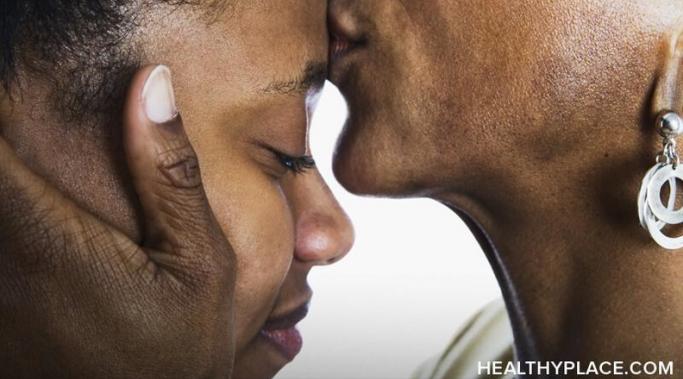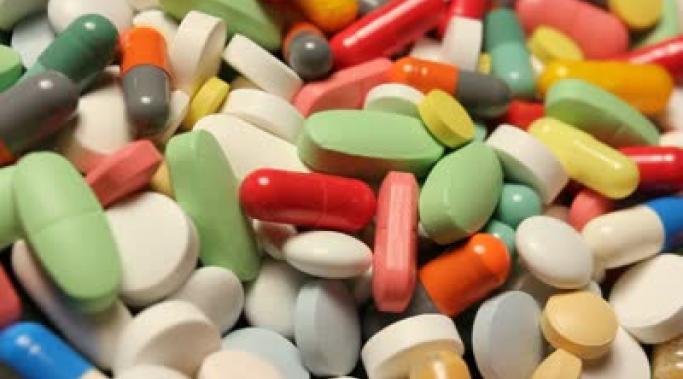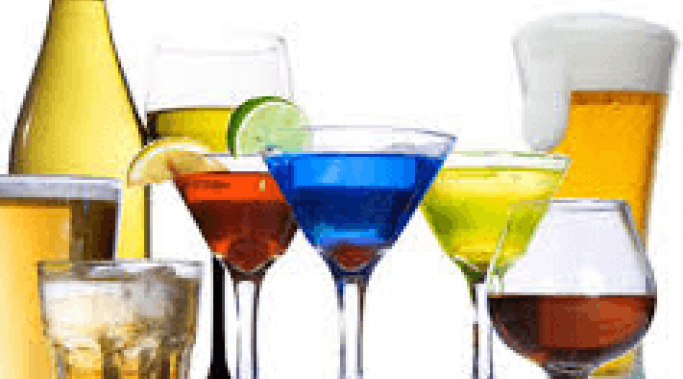People want to know why self-injury is so prevalent in borderline personality disorder (BPD). According to the National Institute of Mental Health's website, borderline personality disorder consists of unstable moods, behaviors, and relationships, with trouble regulating emotions and thoughts while exhibiting impulsive behavior.
Another characteristic of BPD is self-injurious behaviors and increased suicidality. Cutting and other forms of self-harm are so prevalent in borderline that they seem to have become indicators of it. Of course, not everyone who self-harms has BPD, and not everyone with the disorder self-harms. However, self-harm is widely prevalent in BPD. And I was given the borderline diagnosis probably because I cut myself.
Speaking Out About Self Injury
Handling a self-harm, self-injury relapse can seem impossible after you've done all the work that goes into recovery. After all, recovering from self-harm is a long and harrowing process, but it is possible to go into full recovery and when you do, it is one of the best feelings you can experience. Struggling so long with the issues, reasons, and various feelings and emotions that lead to self-injurious behavior can leave us downtrodden and ready to give up. Not giving up gives us a sense of purpose and drive. We are trying to accomplish the major goal of overcoming a self-injury addiction. But with all addictions, there is the possibility of relapse. How do you handle a self-harm relapse?
The workplace can be a stressful and triggering environment for self-harmers. First, we have to make the decision of hiding our scars or not. If we don't, we face questions, scrutiny, and gossip from our coworkers and bosses. Secondly, we may, and probably will, be triggered to self-harm at some point. We can't control what others say and do, or what is asked of us while we're working. Thus, it is essential for us to find ways to minimize stress and stay on the course of recovery from self-harm in a triggering environment like the workplace.
The shame of self-harm can make it difficult to celebrate and feeling proud of our self-harm recovery, no matter how long or short we have gone without self-injuring. Others factors, such as self-harm stigma, can also keep us silent and regretful, even when we have every reason to be proud. It is essential to celebrate our self-harm recovery, as it helps prevent relapse and keeps us moving in the right direction.
Starting new psychiatric medication can affect self-injurious behavior. Starting when I was in my early teens, I was given many different combinations of medications to take for my mental illness. The medication side effects ranged from hives to hallucinations. The worst part about taking a different pill every couple of months was the uncertainty of how it was going to affect my mood. Most of the medications simply failed to make me better, but a few had severe adverse effects on my mood and overall health that were impossible to ignore. As a self-harmer, handling the stress and mood changes that comes along with new medications is vital to recovery. In short, you need to know the effects that new psychiatric medication may have on your self-harming.
A desire to self-harm can be affected by social media. It is sad that most wars have been over something as simple as differing beliefs. I have never been into politics or religion (I support believing in whatever your heart holds to be true), but it does bother me when someone expresses a belief and they get attacked because of it. Whether that attack is verbal, physical or online, it still hurts those who aren’t secure or confident in the skin they wear. Sometimes the pain caused on social media can translate into self-harm.
Reminiscing without self-harm can be hard but you can make memories without scars. With the social media today, practically every step you take is recorded. Whether you are tagged in photographs from the night before or you tweet about the meal you had, life is not a secret anymore. Technology has made it so you cannot forget some of the memories from your past because, well, they may show up on an app or in an online journal or blog you forgot about. Sometimes the most difficult memories are the ones that crush you without warning and reminiscing about these memories can cause self-harm.
Alcohol and self-injury definitely don't mix and can lead to serious consequences. As you may know, self-medicating is a way many people with mental illness deal with the symptoms of their disease. I have fallen into this trap multiple times with heavy drinking. Of course, choosing to self-medicate over a doctor-prescribed treatment is never a good idea, but alcohol can intensify our feelings when we are already suffering from the addiction of self-harm. We may hurt ourselves worse than we ever thought we could, which is exactly what I did.
Did you know you can use bright colors to fight stigma of self-harm? Many people who are not educated about self-harm often picture the addiction in a cliché light. Some may think those who self-harm always wear dark clothing, seclude themselves and are suicidal. Of course, those are simply dark self-harm stigmas that the world has unfortunately thrown at people who self-injure.
Since everyone has his or her own story of struggle, you must fight self-harm stigma and get to know the addiction without cliché expectations. One way to fight the darkness of self-harm stigma is with bright colors.
I am not a very religious person (Self-Harm and Karma: My Religion of Choice). I do not follow a specific religion or promote any kind of religious beliefs. I think everyone is welcome to believe what he or she wishes to believe, but as for me – I typically stay away from religion. However, if I were to believe in any kind of religion, it would be karma. It is very possible that karma can help you stop self-harm.









